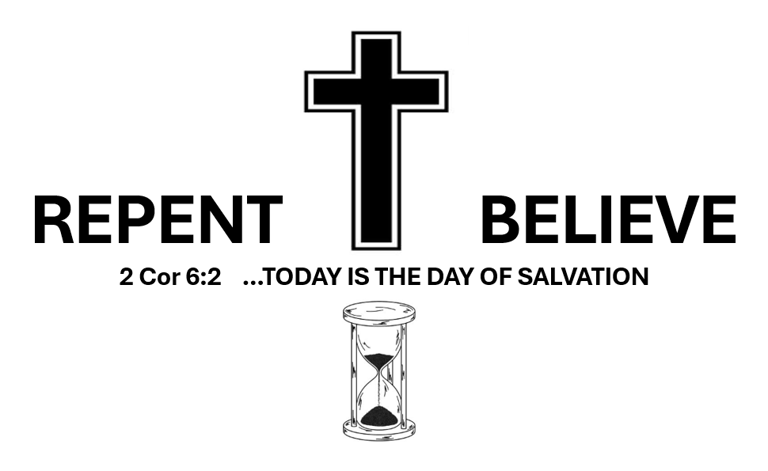Catholic
Catholicism is rooted in the living person of Jesus Christ, who desires to encounter every human being personally and transform their life, leading to eternal happiness in Heaven. The following beliefs are central to Catholic theology:
The Holy Trinity: Catholics believe in one God in three divine persons: Father, Son (Jesus Christ), and Holy Spirit.
Incarnation: Jesus Christ is both divine and human, born of the Virgin Mary, suffering, dying, and rising from the dead.
Sacraments: The Catholic Church celebrates seven sacraments: Baptism, Confirmation, Eucharist (Communion), Penance (Reconciliation), Anointing of the Sick, Holy Orders, and Matrimony. These sacraments are essential for spiritual nourishment and growth.
Additional Beliefs
Original Sin: Catholics believe that humanity fell away from God’s love through sin, but God restored humanity through Jesus Christ.
Salvation: Salvation comes through faith in Jesus Christ and participation in the sacraments.
The Church: The Catholic Church is the one true church, established by Jesus Christ, with the Pope as its head.
Mary and the Saints: Catholics venerate Mary, the Mother of God, and the saints as intermediaries between God and humanity, asking for their intercession and guidance.
Scripture and Tradition: Catholics believe that Scripture and Tradition are equally authoritative sources of divine revelation.
Key Creeds
The Apostles’ Creed: A summary of fundamental Christian beliefs, including the Trinity, Jesus Christ, and the resurrection.
The Nicene Creed: A more detailed statement of faith, affirming the Trinity, Jesus Christ, and the Holy Spirit.
In Summary
Catholic beliefs revolve around the person of Jesus Christ, the Holy Trinity, and the sacraments. These beliefs are rooted in Scripture and Tradition, and are expressed through various creeds and teachings.
Islam
Islamic doctrine, law, and thinking, four sources or fundamental principles (uṣūl) serve as the foundation of Islamic teaching:
The Qurʾān: Regarded as the verbatim word of God, delivered to Muhammad through the archangel Gabriel. Divided into 114 suras (chapters) of unequal length, it is the primary source of Islamic teaching.
The Sunnah (“Traditions”): The sayings, actions, and approvals of the Prophet Muhammad, as recorded by his companions and successors.
Ijmāʿ (“Consensus”): The collective agreement of the Muslim community on a particular issue or interpretation.
Ijtihād (“Individual Thought”): The process of independent reasoning and interpretation by qualified scholars to resolve issues not explicitly addressed in the Qurʾān or Sunnah.
Core Beliefs
Tawḥīd (Monotheism): Belief in the absolute oneness and uniqueness of Allah (God).
Risālah (Prophethood): Belief in the prophethood of Muhammad and the previous prophets, including Adam, Abraham, Moses, Jesus, and others.
Maʿād (Resurrection and Judgment): Belief in the Day of Judgment, where all individuals will be resurrected and judged based on their deeds in this life.
Pillars of Islam
The five pillars of Islam represent the fundamental acts of worship required of all Muslims:
Shahādah (Declaration of Faith): Professing the oneness of Allah and the prophethood of Muhammad.
Salāh (Prayer): Performing the five daily prayers, facing towards the holy city of Mecca.
Zakāh (Charity): Giving a portion of one’s wealth to the poor and needy.
Ṣawm (Fasting): Abstaining from food and drink from dawn to sunset during the month of Ramadan.
Ḥajj (Pilgrimage): Making a pilgrimage to Mecca at least once in a lifetime, if physically and financially able.
Other Important Teachings
Jihad (Striving): Engaging in spiritual and physical efforts to promote the cause of Islam and defend the faith.
Khilāfah (Caliphate): Belief in the importance of a righteous caliph (leader) to guide the Muslim community.
Adab (Ethics): Emphasis on moral character, including honesty, kindness, and compassion.
These beliefs and teachings form the foundation of Islam, guiding the daily lives and practices of Muslims worldwide.
Hindu
Hindu, Our beliefs determine our thoughts and attitudes about life, which in turn direct our actions. By our actions, we create our destiny. Beliefs about sacred matters–God, soul and cosmos–are essential to one’s approach to life. Hindus believe many diverse things, but there are a few bedrock concepts on which most Hindus concur. The following nine beliefs, though not exhaustive, offer a simple summary of Hindu spirituality.
Hindus believe in a one, all-pervasive Supreme Being who is both immanent and transcendent, both Creator and Unmanifest Reality.
Hindus believe in the divinity of the four Vedas, the world’s most ancient scripture, and venerate the Agamas as equally revealed. These primordial hymns are God’s word and the bedrock of Sanatana Dharma, the eternal religion.
Hindus believe that the universe undergoes endless cycles of creation, preservation and dissolution.
Hindus believe in karma, the law of cause and effect by which each individual creates his own destiny by his thoughts, words and deeds.
Hindus believe that the soul reincarnates, evolving through many births until all karmas have been resolved, and moksha, liberation from the cycle of rebirth, is attained. Not a single soul will be deprived of this destiny.
Hindus believe that divine beings exist in unseen worlds and that temple worship, rituals, sacraments and personal devotionals create a communion with these devas and Gods.
Hindus believe that an enlightened master, or satguru, is essential to know the Transcendent Absolute, as are personal discipline, good conduct, purification, pilgrimage, self-inquiry, meditation and surrender in God.
Hindus believe that all life is sacred, to be loved and revered, and therefore practice ahimsa, noninjury, in thought, word and deed.
Hindus believe that no religion teaches the only way to salvation above all others, but that all genuine paths are facets of God’s Light, deserving tolerance and understanding.
Hinduism, the world’s oldest religion, has no beginning–it precedes recorded history. It has no human founder. It is a mystical religion, leading the devotee to personally experience the Truth within, finally reaching the pinnacle of consciousness where man and God are one. Hinduism has four main denominations–Saivism, Shaktism, Vaishnavism and Smartism.
Judaism
Monotheism: Judaism is a monotheistic religion, believing in one transcendent God who revealed himself to Abraham, Moses, and the Hebrew prophets.
Scriptures: The foundation of Jewish belief and practice is the Tanakh (Hebrew Bible), comprising the Torah (first five books), Nevi’im (prophets), and Ketuvim (writings).
Law: The Torah contains the laws and commandments that are central to Judaism, including the Ten Commandments. Jewish law, or halakha, guides religious and ethical conduct, involving ritualistic observance as well as individual and social ethics.
Rituals and Practices: Key practices include:
Observance of Shabbat (Sabbath), a day of rest and worship
Keeping kosher, adhering to dietary laws
Participating in lifecycle events, such as circumcision, bar/bat mitzvah, marriage, and death rituals
Fasting on Yom Kippur (Day of Atonement)
Celebrating holidays like Passover, Sukkot, and Hanukkah
Orthodox, Conservative, and Reform Branches: While sharing core beliefs, these branches differ in their approaches to Jewish law and practice:
Orthodox Jews believe in strict adherence to traditional laws and customs
Conservative Jews interpret Jewish law for modern life, incorporating contemporary sources and community practices
Reform Jews emphasize individual autonomy and adapt Jewish traditions to modern contexts
Jewish Identity: Judaism encompasses not only religious beliefs and practices but also cultural and national identity. Jewish peoplehood is rooted in a shared history, language (Hebrew), and customs.
Key Principles: Some fundamental principles of Judaism include:
Respect for parents and elders
Prohibition against murder, adultery, theft, and false testimony
Emphasis on social justice and compassion
Evolution and Diversity: Judaism has evolved over time, incorporating new ideas and practices while maintaining its core beliefs. Today, Jewish communities around the world reflect diverse interpretations and expressions of Judaism, from traditional to progressive and everything in between.


Atheist
Atheism, in the broadest sense, is an absence of belief in the existence of deities. Less broadly, atheism is a rejection of the belief that any deities exist. In an even narrower sense, atheism is specifically the position that there are no deities. Atheism is contrasted with theism, which in its most general form is the belief that at least one deity exists.
Historically, evidence of atheistic viewpoints can be traced back to classical antiquity and early Indian philosophy. In the Western world, atheism declined as Christianity gained prominence. The 16th century and the Age of Enlightenment marked the resurgence of atheistic thought in Europe. Atheism achieved a significant position in the 20th century with legislation protecting freedom of thought. According to 2003 estimates, there are at least 500 million atheists in the world.[1][needs update]
Atheist organizations have defended the autonomy of science, secular ethics and secularism. Arguments for atheism range from philosophical to social and historical approaches. Rationales for not believing in deities include the lack of evidence,[2][3] the problem of evil, the argument from inconsistent revelations, the rejection of concepts that cannot be falsified, and the argument from nonbelief.[2][4] Nonbelievers contend that atheism is a more parsimonious position than theism and that everyone is born without beliefs in deities;[5] therefore, they argue that the burden of proof lies not on the atheist to disprove the existence of gods but on the theist to provide a rationale for theism.[6]
Definition
Writers disagree on how best to define and classify atheism,[7] contesting what supernatural entities are considered gods, whether atheism is a philosophical position or merely the absence of one, and whether it requires a conscious, explicit rejection; however, the norm is to define atheism in terms of an explicit stance against theism.[8][9][10]
Atheism has been regarded as compatible with agnosticism,.


Christian
THIS IS TRUTH!!!
Christian doctrine, salvation is the process by which sinful humanity is reconciled to God through the life, death, and resurrection of Jesus Christ. This reconciliation is made possible by Jesus’ atoning sacrifice on the cross, which pays the price for humanity’s sin and restores the broken relationship between God and humanity.
Key Components
Sin: Christians believe that humanity is born with a sinful nature, separated from God, and in need of redemption.
Atonement: Jesus’ death on the cross is seen as the means by which God’s justice is satisfied, and humanity’s sin is forgiven.
Justification: Through faith in Jesus Christ, individuals are declared righteous and justified before God, receiving eternal life and forgiveness.
Salvation: This process of justification and forgiveness is referred to as salvation, which is a gift from God, available to all through faith in Jesus Christ.
Variations and Interpretations
While there is a core understanding of salvation across Christian denominations, there are varying interpretations and emphases:
Exclusive salvation: Some Christians believe that salvation is only available to those who explicitly accept Jesus Christ as their savior.
Focus solely on faith in Jesus Christ.
Scriptural Foundations
Christian beliefs on salvation are rooted in Scripture, particularly:
The life, death, and resurrection of Jesus Christ (Gospels and Epistles)
Paul’s teachings on justification and atonement (Romans, Galatians, Ephesians)
Jesus’ own teachings on salvation and the kingdom of God (Matthew, Luke, John)
Practical Applications
For Christians, salvation is not merely a theoretical concept but a lived reality. It shapes their daily lives, relationships, and worship, as they seek to:
Live in obedience to God’s commands
Share the gospel with others
Experience a deeper relationship with God
Anticipate eternal life and glorification in Heaven
In summary, Christian beliefs on salvation center on Jesus Christ’s atoning sacrifice, which reconciles humanity to God, and is received through faith. While there are variations in interpretation, the core message remains: salvation is a gift from God, available to all through faith in Jesus Christ.
Jesus says, "I AM the Way, the Truth and the Life. No One comes to the Father except through ME."




Dear Jesus,
I confess that I am a sinner, and I need your salvation. I believe that you died on the cross for my sins and rose again on the third day. I accept your gift of eternal life and invite you to be my Lord and Savior.
I pray that you would forgive me, cleanse me, and restore me to a right relationship with God. I ask that you would give me a willing spirit, a heart of repentance, and a desire to follow you all the days of my life.
In your name, I pray. Amen.












